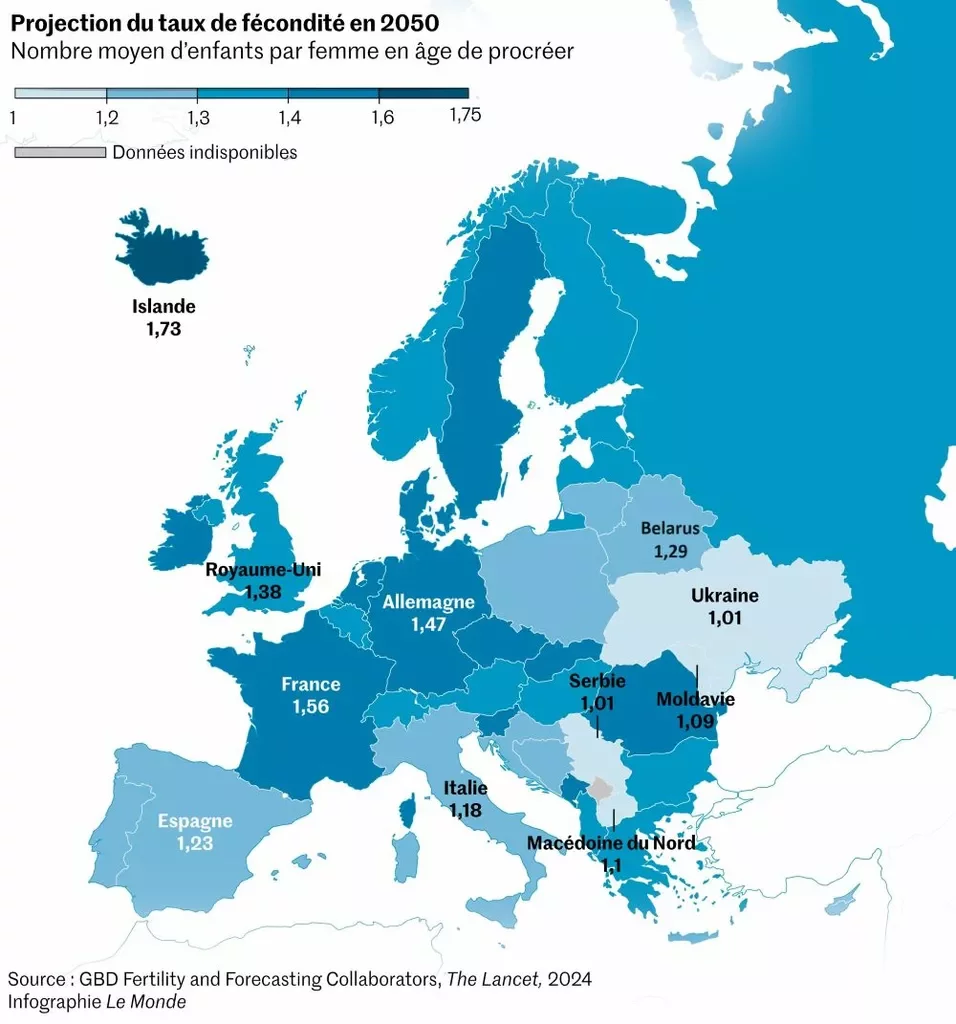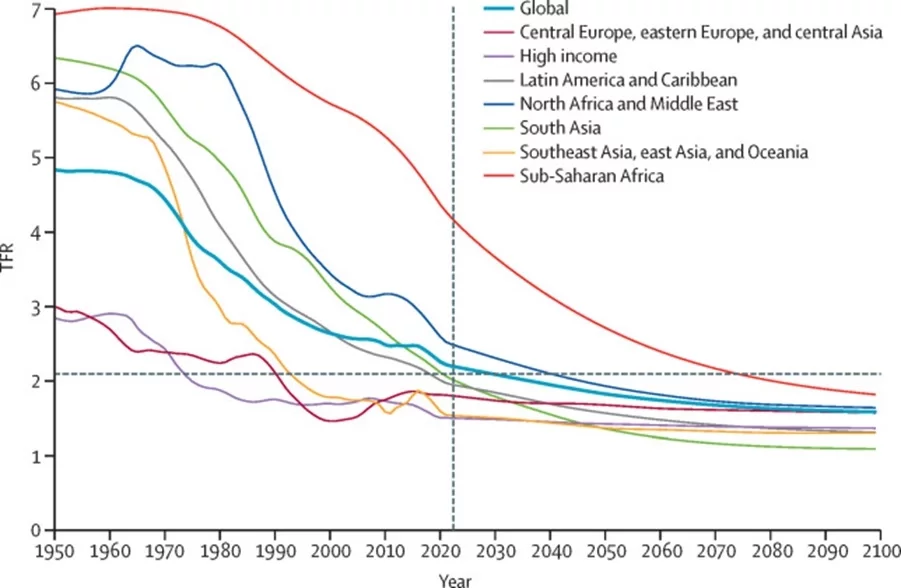Global birth rates expected to drop in coming decades - fertility study
 Global birth rates expected to drop in coming decades (Unsplash)
Global birth rates expected to drop in coming decades (Unsplash)
A substantial drop in childbirths is expected in many regions of the world in the coming decades, leading to considerable social changes on the planet, according to The Lancet.
Drop and surge in birth rates
The decline in birth rates will be so significant that more than three-quarters of countries are forecasted to be incapable of sustaining the current population level by 2050, with over 97 percent of nations facing this issue by the end of the century.

Forecast of the birth rate index in 2050 (photo: The Lancet)
This is the main conclusion of a new global fertility study conducted by the Institute for Health Metrics and Evaluation (IHME), which predicts deep demographic disparities worldwide. While birth rates are declining in most regions, an increase is expected in African countries south of the Sahara.
According to forecasts, about 77 percent of births will occur in low-income countries by the end of the century. For comparison, in 2021, countries in Africa south of the Sahara accounted for 29 percent of global childbirths. By 2100, this share will exceed 54 percent.

Change in the birth rate index by 2100 by regions and globally (photo: The Lancet)
What are the consequences
This demographic gap causes economic and social problems, such as a drop in the workforce and an increase in caring for the elderly. Resource-constrained African countries will have to overcome a sharp increase in the young population amid economic constraints and political instability.
The study's authors consider balanced migration policies and support for parents in developed countries, such as expanded childcare leave, financial incentives, employment benefits, and other measures, as ways to mitigate the consequences of this divide.

